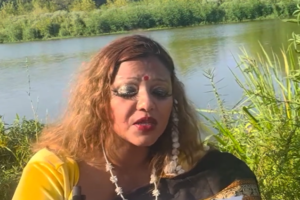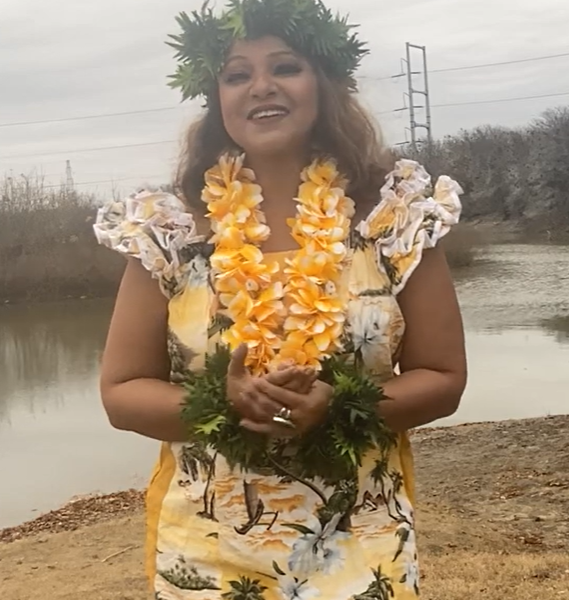The failing health of Lake Erie, the world’s 11th largest lake, is at the heart of one of the most unusual questions to appear on an American ballot: Should a body of water be given rights normally associated with those granted to a person?
Voters in Toledo, Ohio, will be asked this month to decide whether Lake Erie, which supports the economies of four states, one Canadian province and the cities of Toledo, Cleveland and Buffalo, New York, has the legal right “to exist, flourish, and naturally evolve.”
The peculiar ballot question comes amid a string of environmental calamities at the lake — poisonous algal blooms in summer, runoff containing fertiliser and animal manure, and a constant threat from invasive fish. But this special election is not merely symbolic. It is legal strategy: If the lake gets legal rights, the theory goes, people can sue polluters on its behalf.
The proposed Lake Erie Bill of Rights is part of a growing number of efforts to carve out legal status for elements of nature, including rivers, forests, mountains and even wild rice. The efforts, which began decades ago but have gathered momentum in recent years, seek to show that existing laws are insufficient to protect nature against environmental harm. Under current law, lakes and deserts do not have legal standing, so people cannot sue on their behalf.
In Toledo, residents and elected officials say they believe the initiative has a good chance of being approved, but there is a catch: The measure’s own backers acknowledge that it is likely to be challenged in court as having little or no legal footing, and that it could ultimately be invalidated as reaching beyond the scope of city law.
The initiative’s main opponents are the owners of area farms, where much of the agricultural runoff that feeds the lake’s toxic algae originates. Farmers say that if the measure passes thousands of small farms could be sued for damages for polluting the lake and driven out of business.
Thomas Linzey, executive director of the Community Environmental Legal Defense Fund, a nonprofit group based in Pennsylvania that helped write the measure, said existing environmental laws were inadequate.
The intent of the initiative, Linzey said, is twofold — to send a warning that the community is fed up with a lack of state and federal action to protect Lake Erie, and to force the courts to recognise that ecosystems like the lake “possess independent rights to survive and be healthy.”
In other words, that rivers have a right to flow, forests have a right to thrive and lakes have a right to be clean.
Even if that concept never becomes the law of the land, the group says that its efforts are meant to make it clear that places like Toledo will oppose what they see as environmental degradation, sending an unsubtle message that certain companies might want to look elsewhere to do business.
The broader idea, environmentalists say, is a rethinking of nature and an individual’s place in it.
“There’s no precedent for any of this,” Linzey said. “It is almost a new consciousness — that a community is not just Homo sapiens.”
As the Feb 26 Election Day approaches, some Toledo residents say their dependence on Lake Erie has made the question of the lake’s rights more than theoretical.
In 2014, the city went without drinking water for three days when the lake became so fouled by phosphorus runoff from upstream farms that household water was fit only for flushing toilets.
Stores closed. Hospitals accepted only the most seriously ill patients. Restaurants were empty. And some 500,000 people depended on bottled water in the middle of a brutally hot August.
“The city of Toledo shut down,” said Crystal Jankowski, 31, who was in a hospital delivering her daughter during the water crisis. “They were having to cancel surgeries because they couldn’t sterilise equipment.”
While the idea of nature having rights has been around for centuries, environmental advocates point to a 1972 US Supreme Court decision, Sierra Club v. Morton, as providing much of the impetus for current efforts.
In that case, the court ultimately rejected the notion of nature’s rights, but Justice William O Douglas wrote in a dissent that “contemporary public concern for protecting nature’s ecological equilibrium should lead to the conferral of standing upon environmental objects to sue for their own preservation.”
In Toledo, much of Lake Erie is frozen over this winter. But nearly every summer for the past several years, water runoff from large farms flowed into the lake and produced a slick green coating of toxic algae so expansive that it could be seen from space.
The 2014 water crisis failed to spur a state or federal crackdown on large farms in the Maumee River basin, where fertilisers used for crops contain phosphorus, which is washed into streams and eventually the river during rainstorms.
Once in the lake, the phosphorus feeds the algae, which produces microcystin, a toxin that causes diarrhoea, vomiting and liver-function problems in humans and can kill small animals — including dogs — that ingest it.
Yvonne Lesicko, vice president for public policy at the Ohio Farm Bureau, acknowledged that farms were the primary culprit, but also pointed to other sources of harmful runoff like lawns, septic systems and golf courses.
Lesicko said farmers have sought to limit the amount of runoff, but estimated that measures like using less fertiliser and building berms may take as long as 15 or 20 years to produce results.
The ballot initiative, she said, was not a reasoned response to a complex problem.
“We care very much about the lake,” Lesicko said. “But this is not a solution. In fact, it is counterproductive. This is going to lead to lots of lawsuits and stress.”





















